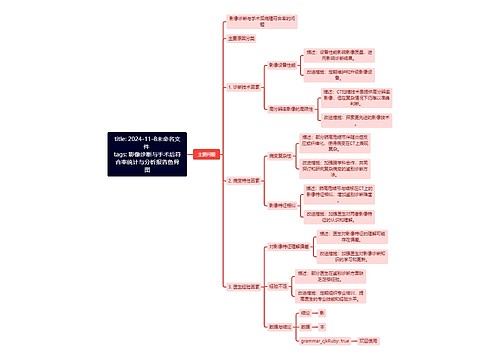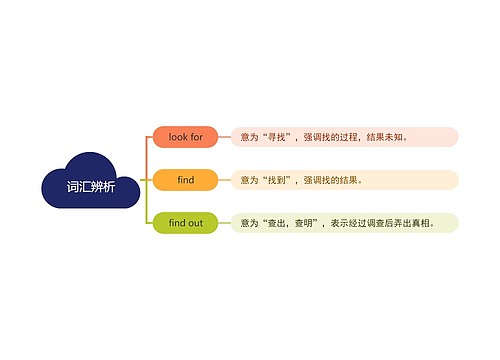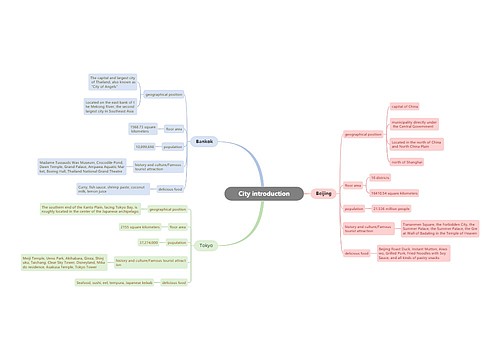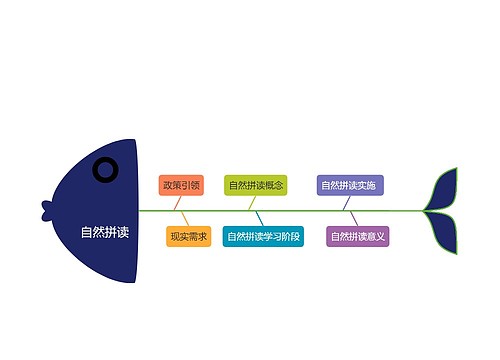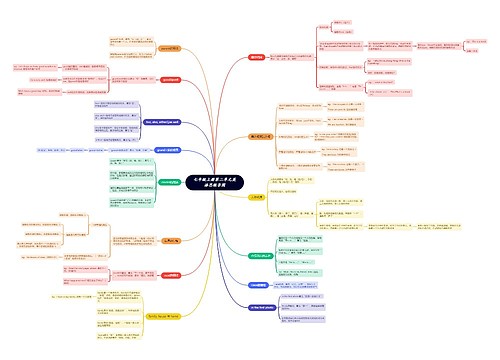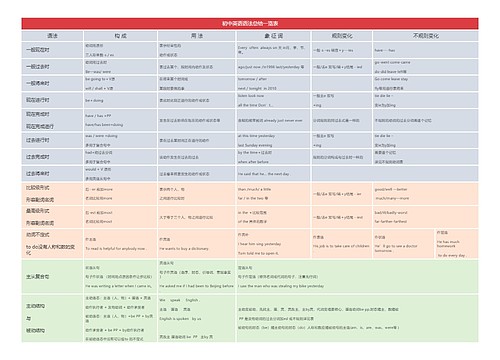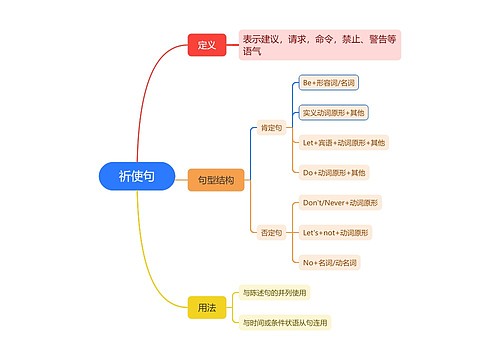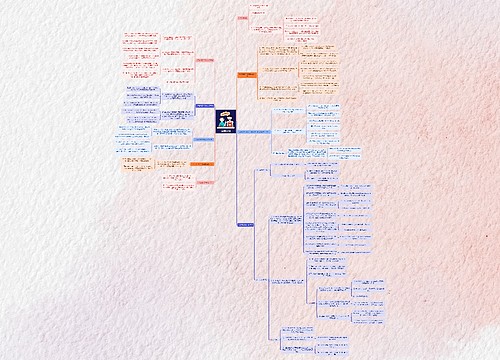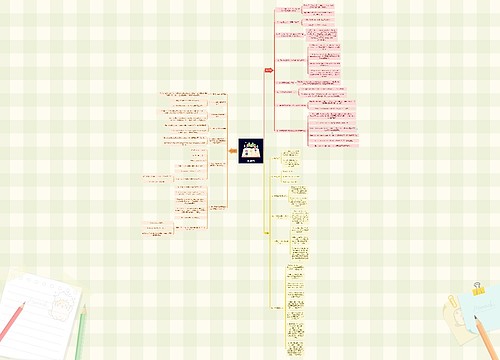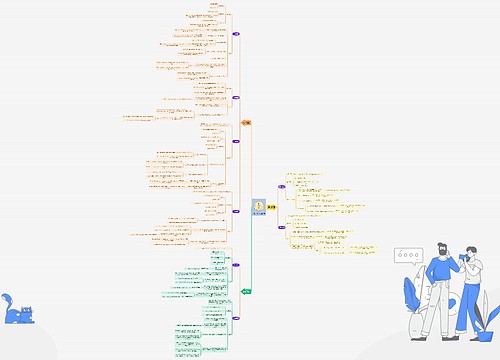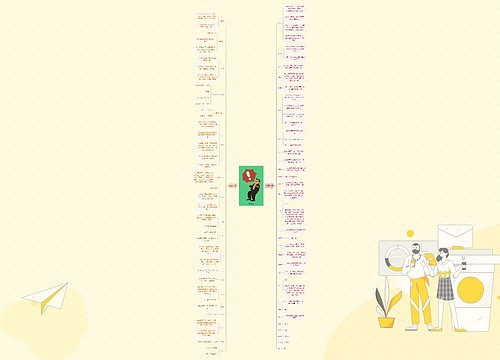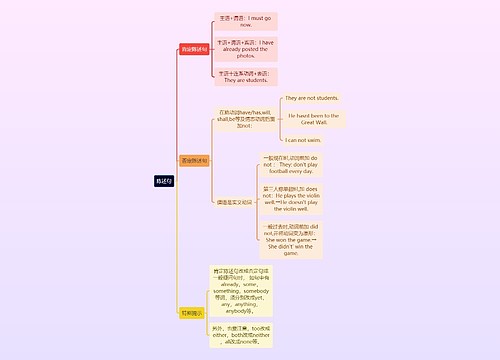1. 从词类上区别,同位语从句前面的名词只能是idea,fact,news,hope,belief,suggestion,proposal,word,thought,doubt,truth,possibility,promise,order等有一定内涵的名词,而定语从句的先行词可以是名词、代词、主句的一部分或是整个主句。如:
Thepossibility that the majority of the labour force will work at home is oftendiscussed.人们经常讨论大多数劳动力将会在家里工作的可能性 (同位语从句)
Weare not looking into the question whether he is worth trusting. 我们正在调查的问题不是他是否值得信赖的问题 (同位语从句)
Wordcame that he had been abroad. 据说他已经出国了 (同位语从句)
Ourteam has won the game, which made us very happy. 我们的队赢了,这让我们很高兴 (定语从句)
Thedoctor whom you are looking for is in the room. 你找的那位医生在房间里面 (定语从句)
Hismother did all she could to help him with his study. 他妈妈尽她的最大努力帮助他的学习 (定语从句,代词all作先行词?)
3. 从引导词及其在句子中的成分上区别 ,有些引导词如how, whether, what可以引导同位语从句,但不能引导定语从句如:
Thatquestion whether we need it has not been considered. 我们是否需要它这个问题还没有考虑 (同位语从句)
Ihave no idea what has happened to him. 我不知道他发生了什么事 (同位语从句)
引导词that引导定语从句时,在从句中一般作主语或宾语(指物时还可以用which代替),并且作宾语时常常省略that在同位语从句中仅起连接作用,不充当任何成分,并且不能省略,也不能用which来代替如:
Theorder that we should send a few people to help the other groups was receivedyesterday. 我们应派几个人去帮别的几个小组的命令昨天收到了(同位语从句,是对order的具体解释,that虽不作成分,但不能省略)
Theorder that we received yesterday was that we should send a few people to helpthe other groups. 我们昨天收到的命令是我们应该派几个人去帮助别的几个小组(定语从句,是名词order的修饰语,that在从句中作received的宾语,可以省略)
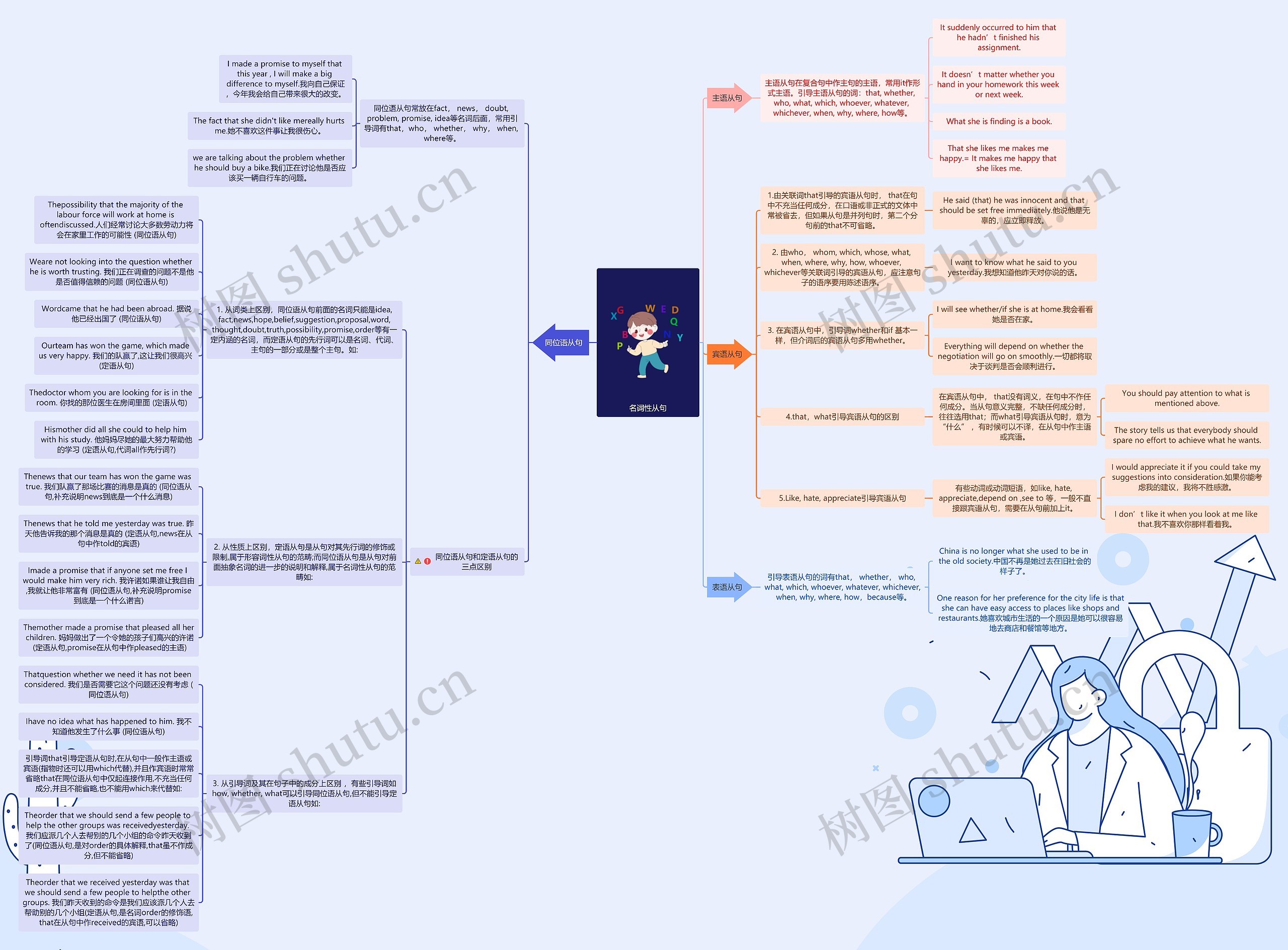
 U633687664
U633687664
 U880271396
U880271396